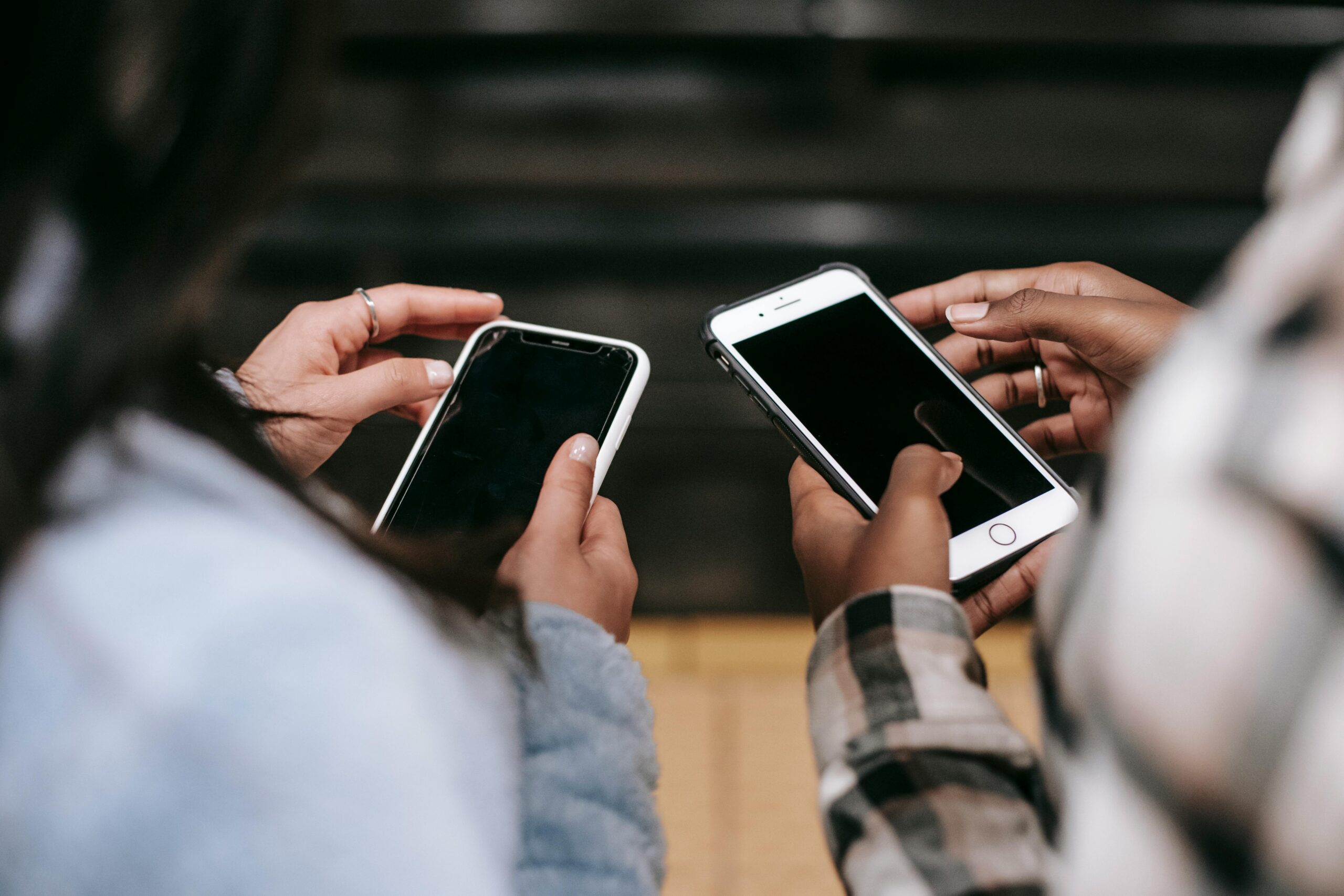
Telehealth companies are becoming more and more popular these days, especially given the prolonged pandemic, and the need to restructure our healthcare system to ensure access for all, in the United States. If there is one thing COVID-19 has exposed, is the need to prioritize health issues that often get pushed aside or stigmatized by various factors.
Evernow, a telehealth company based out of San Francisco is working to fill the gap and make women’s health a priority, amidst a healthcare landscape that is so fraught and complex when it comes to women especially. Evernow’s focus is specifically on women over 40, and they are doubling down on their mission with recent additions to their team.
In December they announced that Dr. Leah Millheiser, an OB/GYN and expert in menopause and female sexual medicine, and Dr. Sonali (Allie) Sharma, an adult psychiatrist and co-host of the podcast Model Mentality, were joining their team. Additionally, the Buck Institute’s Jennifer Garrison, PhD, a leading authority on ovarian biology, and her expertise surrounding how reproductive lifespan fits into the greater context of longevity, joined Evernow as a Scientific Advisor.
In her new role as Chief Medical Officer, Dr. Millheiser will leverage her extensive background in academia, biotech, and telehealth to help Evernow continue to pioneer new models of care that leverage technology to reflect the rapidly evolving science around the second half of women’s lives.
As the newest member of their Medical Advisory Board, Dr. Sharma brings her expertise in mental health and population health, ensuring that Evernow continues to grow in a way that is supportive of the psychological needs of the demographic it serves. And if there is a demo that has disproportionately been impacted by the pandemic, whether due to economics or change in mental health, it is working women.
Given that 2022 is in full swing, we wanted to speak with both Dr. Millheiser and Dr. Sharma about the work they are doing, and how they hope to empower women in their new roles.

Dr. Leah Millheiser
As an expert in menopause, can you speak to why this issue, as well as the idea of a woman being sexual over 40, still carries so much taboo in society? And how do you hope to change this with your new role at Evernow?
The idea that sex ends for a woman at menopause could not be any further from the truth. Research tells us that women remain sexually active until the end of their lives, keeping in mind that “sex” after menopause can take many different forms. The reality is that maintaining a satisfying sex life after menopause takes some work but the pay-off is definitely worth it. Among its many known benefits, sexual activity promotes greater relationship intimacy and improves vaginal health.
At Evernow, we look at each woman’s peri- and postmenopausal experience from a holistic lens and their care plan needs to be tailored to their specific symptoms. Systemic hormone therapy and local vaginal estrogen therapy are just 2 of the ways we support our patients in maintaining a healthy, active sex life.
What are 3 important health areas women need to prioritize more once they hit 40?
Bone health, breast health, and sexual health. Bone loss typically begins in a woman’s 30s, but at a slow rate. Once she hits menopause, the rate of bone loss increases significantly which can potentially lead to osteopenia or osteoporosis. By focusing on adequate dietary calcium intake and performing weight bearing exercises in her 40s, a woman has a better chance of continuing these interventions in her 50s and beyond, promoting healthier bone mass.
Breast cancer screening (breast surveillance and mammogram) is important once a woman enters her 40s as nearly 1 in 6 breast cancers are diagnosed in women between the ages of 40-49. Low libido and sexual pain are the two most common sexual concerns that women experience during and after menopause. However, these concerns often start even before perimenopause begins and can worsen over time. This is why speaking with a clinician when symptoms first present is so important as effective treatments do exist.
While it has become common place to “invisibilize” women over a certain age, how do you hope to empower more women through knowledge about their bodies, and their age?
Knowledge is power when it comes to menopause. The notion that women feel invisible after they go through menopause is real. I hear it from many of my own patients. They feel like the media and the medical community at large has forgotten about them. They are bombarded with messages about the importance of male virility and the power of a little blue pill in the aging male, while the idea of marketing sexuality to the aging woman is still taboo.
The truth is that many clinicians are not educated in the specific healthcare needs of menopausal women. Most medical students and residents have to seek this education out on their own, usually as an elective, during their training. It is shocking that this gap in medical education still exists given that every woman will go through menopause if they reach a certain age. Evernow was created to address this unmet need and provide evidence-based care by clinicians who are highly trained in the care of women in the menopause transition and beyond.

Dr. Allie Sharma
Mental health has become a much bigger focus throughout the pandemic, and especially among women and mothers. How will you be incorporating your expertise toward the 40+ women that Evernow works with?
Mental health and physical health are interconnected. Menopause is a phase of life we go through at a time where we may have significant responsibilities with family, at work, as a caregiver for two generations, and its also symbolizes a shift from our reproductive years which can have deep emotional meaning for some. And then, on top of that you have a myriad of symptoms affecting mood, sleep, sexuality and your physical body that are hard to tolerate and may interfere with your quality of life.
Mental health needs to be a part of how we think about menopause, how we talk about menopause and how we treat menopause. My role as an advisor will be to focus on integrating mental health into all aspects of menopause care including education and advocacy.
Your work has taken you all over the world, in many different fascinating capacities! Among all the people you have worked with and served, what are some of the biggest common threads when it comes to mental health?
What I quickly learned while working across cultures and countries is that mental health is universal and is a part of the human experience no matter who you are and where you are. Whether in Nepal, Burundi, or NYC, people experience depression, anxiety, stress, distress, bipolar, schizophrenia, substance use and many other mental health conditions. What differs is the way people understand mental health, the way they talk about it, and the differences in language and culture around mental health.
And an unfortunate common thread is that in societies and communities where mental health is unduly stigmatized and not integrated into the health system, people do not get the care that they need. They suffer in silence or within their families, or within themselves. And what is important to acknowledge is that if you provide people with a safe space to talk, a conversation on what they may be going through, a moment to find safety and to connect with someone on how they are feeling, there can be immense relief, even if just for a moment. Of course, there is so much more to do than that.
You host the podcast Model Mentality with Bridget Malcolm, with the aim of having more open conversations about mental health. Although you are the trained expert, what are some of the things you have learned from people you have interviewed?
Three things come to mind as to what I have learned from our podcast guests:
- If success is determined by what you look like, and when beauty ideals are focused on being thin as opposed to representing a diverse range of body types that actually exist in society, body image issues become an unfair indicator of success and can have a negative impact on mental health and functioning. And I like to think of mental health in terms of occupational hazards. So the hazard or mental health risk for models is that they may be more sensitive to body image ideals and therefore more at risk for eating disorders and a range of other mental health issues.
- Even if you are beautiful and flawless on the outside, we know that there is always a deep journey of feelings, emotions, sensitivities on the inside. That is a part of being human : ). I have learned in detail that for one flawless beautiful photo in a magazine, the amount of resources, energy and human input into making it perfect is enormous. So we actually can’t judge ourselves by those magazine photos. It’s an erroneous comparison.
- Through looking at some studies, talking to our guests and thinking about social media, what has come up is an inherent irony: that a young girl for example, may be looking at a photo of a model on social media, where the model appears beautiful, perfect, and looks contented and happy. And perhaps that young girl starts to feel insecure and bad about herself while looking at the photo. But that same model may be deeply struggling with her own sense of self, identity, body image issues, anxiety, depression and more. Bridget Malcolm said It herself in one of our episodes, that in photos where she was getting feedback that she was looking her best, she was actually feeling her worst. Food for thought!
How do cultural attitudes and societal expectations on women 40 and over play a role in the way their mental health is impacted?
If we think about women over 40, whether we are talking about mothers in the peaks of their career, or women caretaking for others, or in general women coming to terms with this decade of life, I would say that life becomes more complex and there are many potential stressors that can impact mental health. And I think we should expect that stress can be high at this age and therefore women need to prioritize their mental health even more.
In my experience, women in our culture tend to take on a lot in their 40’s and especially if they are caring for others – whether their children, their elders or their employees – they need more support and connection around this. And perhaps our cultural attitudes and expectations have not fully integrated the importance of self-care and wellness (not just physical fitness!) into these responsibilities.
When I speak with women, I am always struck by how it feels like it’s more about self-sacrifice and trying to do it all (depending on the household division of labor) and perfectly for that matter, that needs to be adjusted. Perhaps where we need to go to is to ‘try to do your best and that is good enough’, ‘focus on your mental health in order to better take care of others and improve your productivity’, and ‘imperfection is ok’!
To learn more about Evernow and its initiatives, visit https://evernow.com/.

















